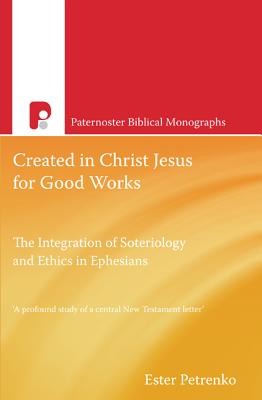
- We will send in 10–14 business days.
- Author: Esther Petrenko
- Publisher: AUTHENTIC
- Year: 2011
- Pages: 316
- ISBN-10: 1842277278
- ISBN-13: 9781842277270
- Format: 15.2 x 22.9 x 1.7 cm, minkšti viršeliai
- Language: English
- SAVE -10% with code: EXTRA
Reviews
Description
The relationship between the so-called 'theological' (Eph 13) and 'paraenetic' (Eph 46) sections of Ephesians has been a matter of extensive scholarly discussion. Central to this debate is the question whether the ethical material found in Ephesians 46 is an integral part of the theological statements in Ephesians 13, or whether it is merely an appendage with its own self-contained theology. This study undertakes a fresh investigation into the relationship between the 'theological' and 'paraenetic' sections of Ephesians. It demonstrates the intrinsic integration of both parts of the letter by examining the soteriological pattern of Ephesians, and how salvation entails the moral and social transformation of believers; this, in turn, renders meaningless the category-distinction between 'theology' and 'ethics'.
EXTRA 10 % discount with code: EXTRA
The promotion ends in 22d.06:54:38
The discount code is valid when purchasing from 10 €. Discounts do not stack.
- Author: Esther Petrenko
- Publisher: AUTHENTIC
- Year: 2011
- Pages: 316
- ISBN-10: 1842277278
- ISBN-13: 9781842277270
- Format: 15.2 x 22.9 x 1.7 cm, minkšti viršeliai
- Language: English English
The relationship between the so-called 'theological' (Eph 13) and 'paraenetic' (Eph 46) sections of Ephesians has been a matter of extensive scholarly discussion. Central to this debate is the question whether the ethical material found in Ephesians 46 is an integral part of the theological statements in Ephesians 13, or whether it is merely an appendage with its own self-contained theology. This study undertakes a fresh investigation into the relationship between the 'theological' and 'paraenetic' sections of Ephesians. It demonstrates the intrinsic integration of both parts of the letter by examining the soteriological pattern of Ephesians, and how salvation entails the moral and social transformation of believers; this, in turn, renders meaningless the category-distinction between 'theology' and 'ethics'.


Reviews